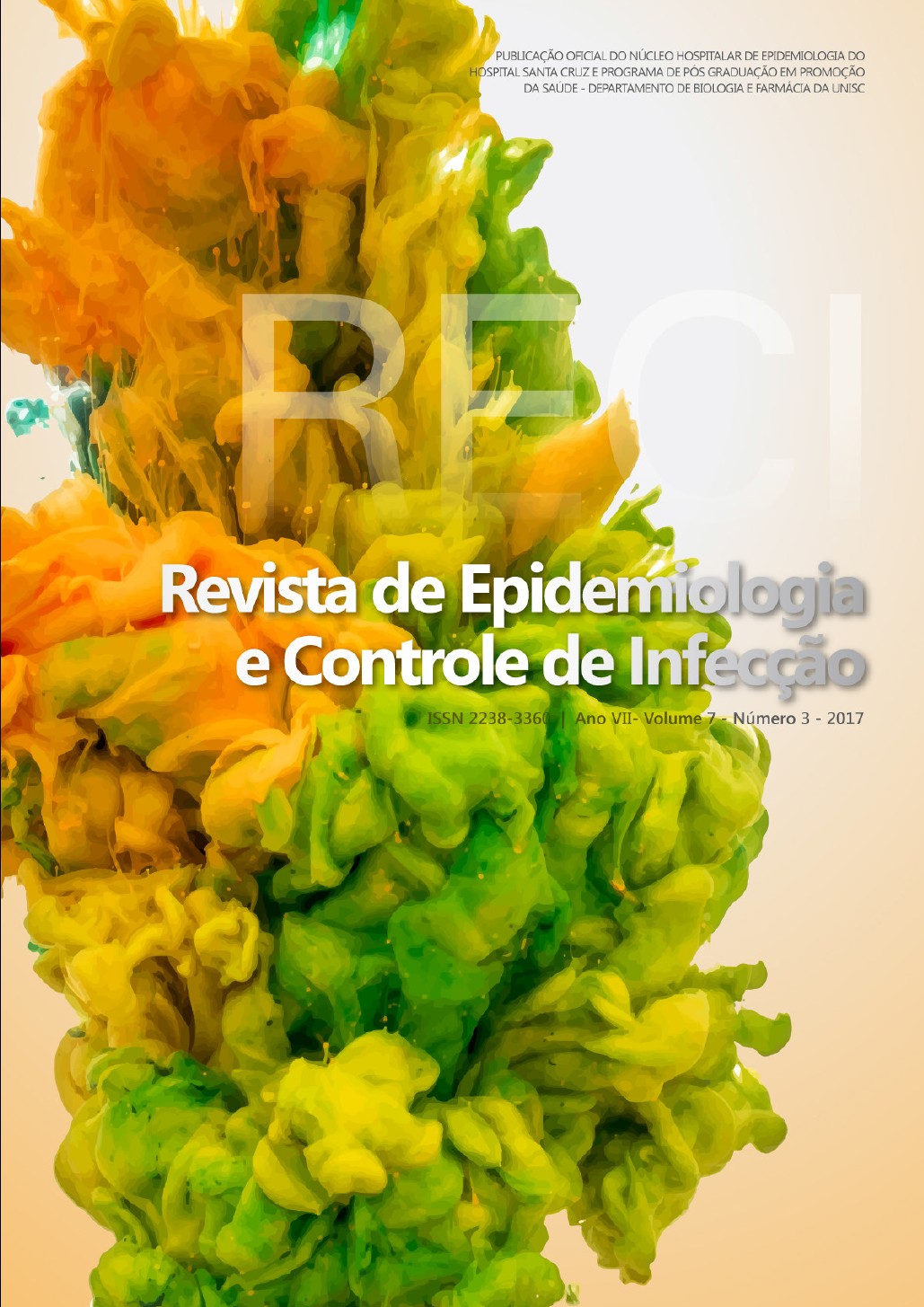Equipo de evaluación de conocimiento de la enfermería en international apunta seguridad del paciente en unidades de cuidados intensivos
DOI:
https://doi.org/10.17058/reci.v7i3.8780Resumen
Antecedentes y objetivos: La calidad de la atención de los pacientes del hospital y la seguridad en su estancia, desencadenaron discusiones sobre el tema en el mundo después del análisis de los estudios epidemiológicos en los EE.UU. que era completar la elevada tasa de eventos adversos en ambiente hospitalario causado por negligencia, con este tema que ganó fuerza y condujo las discusiones acerca de los modelos de atención aplicados a los pacientes. Por tanto, el objetivo del estudio fue evaluar el conocimiento del personal de enfermería del sector unidad de cuidados intensivos en un hospital público de RecifePE en International apunta a la seguridad del paciente. Métodos: Estudio transversal con enfoque cuantitativo descriptivo, llevado a cabo de junio a agosto de 2016. La recolección de datos se realizó mediante un cuestionario semiestructurado que abordó aspectos sociales y profesionales de los encuestados. Las variables: sexo, edad, categoría profesional y tiempo de entrenamiento. Los datos se analizaron en el programa Epi Info versión de software 3.2.2. Resultados: La muestra estuvo constituida por 50 profesionales, 18% enfermeras y 82% de los técnicos de enfermería. La mayoría de los encuestados coincidieron en más del 50% de las preguntas de los objetivos internacionales de seguridad del paciente y tener más de un contrato de trabajo. Conclusión: Se encontró que la falta de formación, la sobrecarga de trabajo y más de una relación de trabajo puede contribuir a una asistencia profesional precaria. PALABRAS CLAVE: Seguridad del paciente. Enfermería. Gestión de la seguridad. Unidades de Cuidados Intensivos.Descargas
##submission.downloads##
Publicado
Cómo citar
Número
Sección
Licencia
The author must state that the paper is original (has not been published previously), not infringing any copyright or other ownership right involving third parties. Once the paper is submitted, the Journal reserves the right to make normative changes, such as spelling and grammar, in order to maintain the language standard, but respecting the author’s style. The published papers become ownership of RECI, considering that all the opinions expressed by the authors are their responsibility. Because we are an open access journal, we allow free use of articles in educational and scientific applications provided the source is cited under the Creative Commons CC-BY license.


